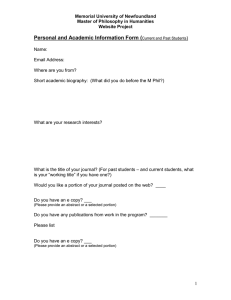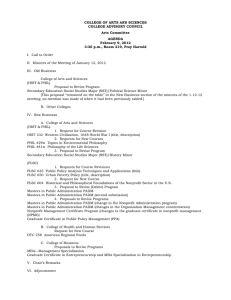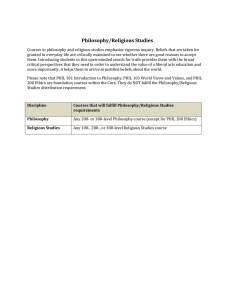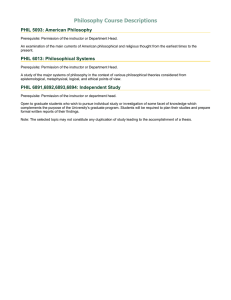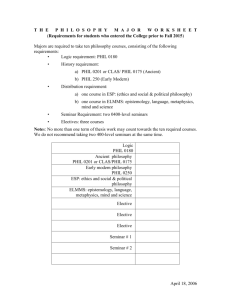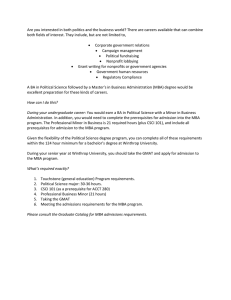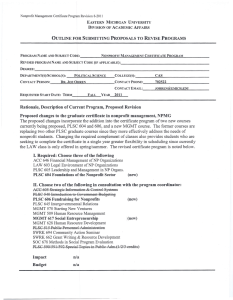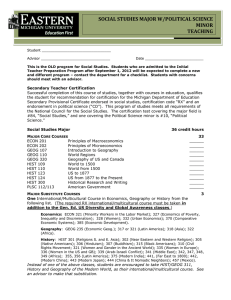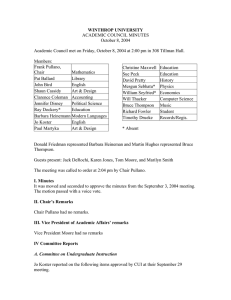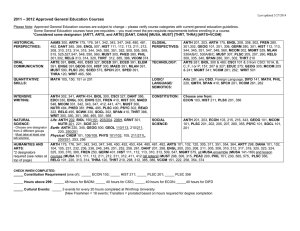In addition, to complete the LSM a student must take... least one course from each of the following four groups:
advertisement
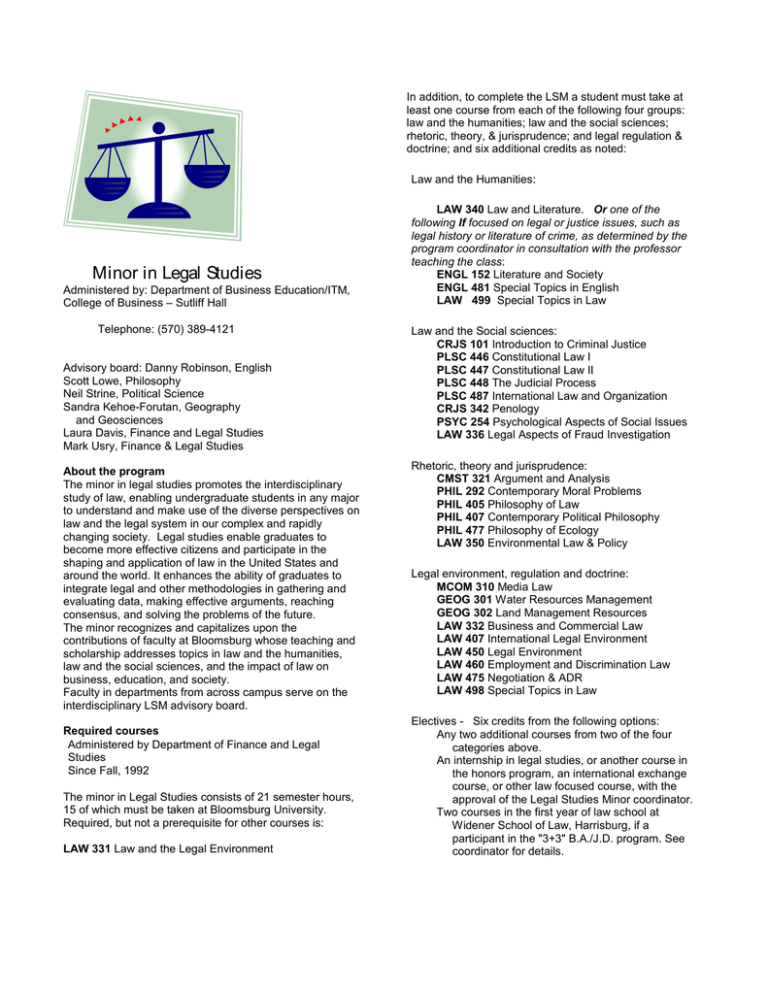
In addition, to complete the LSM a student must take at least one course from each of the following four groups: law and the humanities; law and the social sciences; rhetoric, theory, & jurisprudence; and legal regulation & doctrine; and six additional credits as noted: Law and the Humanities: Minor in Legal Studies Administered by: Department of Business Education/ITM, College of Business – Sutliff Hall Telephone: (570) 389-4121 Advisory board: Danny Robinson, English Scott Lowe, Philosophy Neil Strine, Political Science Sandra Kehoe-Forutan, Geography and Geosciences Laura Davis, Finance and Legal Studies Mark Usry, Finance & Legal Studies About the program The minor in legal studies promotes the interdisciplinary study of law, enabling undergraduate students in any major to understand and make use of the diverse perspectives on law and the legal system in our complex and rapidly changing society. Legal studies enable graduates to become more effective citizens and participate in the shaping and application of law in the United States and around the world. It enhances the ability of graduates to integrate legal and other methodologies in gathering and evaluating data, making effective arguments, reaching consensus, and solving the problems of the future. The minor recognizes and capitalizes upon the contributions of faculty at Bloomsburg whose teaching and scholarship addresses topics in law and the humanities, law and the social sciences, and the impact of law on business, education, and society. Faculty in departments from across campus serve on the interdisciplinary LSM advisory board. Required courses Administered by Department of Finance and Legal Studies Since Fall, 1992 The minor in Legal Studies consists of 21 semester hours, 15 of which must be taken at Bloomsburg University. Required, but not a prerequisite for other courses is: LAW 331 Law and the Legal Environment LAW 340 Law and Literature. Or one of the following If focused on legal or justice issues, such as legal history or literature of crime, as determined by the program coordinator in consultation with the professor teaching the class: ENGL 152 Literature and Society ENGL 481 Special Topics in English LAW 499 Special Topics in Law Law and the Social sciences: CRJS 101 Introduction to Criminal Justice PLSC 446 Constitutional Law I PLSC 447 Constitutional Law II PLSC 448 The Judicial Process PLSC 487 International Law and Organization CRJS 342 Penology PSYC 254 Psychological Aspects of Social Issues LAW 336 Legal Aspects of Fraud Investigation Rhetoric, theory and jurisprudence: CMST 321 Argument and Analysis PHIL 292 Contemporary Moral Problems PHIL 405 Philosophy of Law PHIL 407 Contemporary Political Philosophy PHIL 477 Philosophy of Ecology LAW 350 Environmental Law & Policy Legal environment, regulation and doctrine: MCOM 310 Media Law GEOG 301 Water Resources Management GEOG 302 Land Management Resources LAW 332 Business and Commercial Law LAW 407 International Legal Environment LAW 450 Legal Environment LAW 460 Employment and Discrimination Law LAW 475 Negotiation & ADR LAW 498 Special Topics in Law Electives - Six credits from the following options: Any two additional courses from two of the four categories above. An internship in legal studies, or another course in the honors program, an international exchange course, or other law focused course, with the approval of the Legal Studies Minor coordinator. Two courses in the first year of law school at Widener School of Law, Harrisburg, if a participant in the "3+3" B.A./J.D. program. See coordinator for details.
